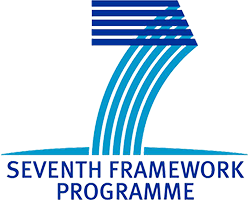WIOD


WIOD: Construction and Applications
This project started on May 1, 2009. Policy makers and societies at large are facing increasingly pressing trade-offs between socio-economic and environmental developments. Well-known are the trade-offs between economic growth and environmental sustainability. Increases in production induce increases in the use of non-renewable resources such as fossil fuels, materials, land and water, and they generate higher levels of waste and environmental pollutants. Similarly, increasing global integration through international trade and technological developments creates a tension between economic growth and social cohesion. Economic development seems to be coupled to an increasing inequality between countries as well as between various classes within society, in particular low- versus high-skilled workers. These developments are global and any analysis of their causes and effects needs to recognize the dynamic interrelatedness of countries and industries.
This project aims to develop databases, accounting frameworks, models and a consistent expert-system. They may be used to describe and analyse the trends mentioned above and they allow for structured policy assessments. The basic philosophy underlying this proposal is that its aims can only be achieved by combining into a single project: (1) data construction, (2) methodology development, (3) data applications, and (4) policy analysis.
The proposed project has the following, distinguishing characteristics.
- A worldwide set of national input-output (IO) tables (covering 80% of world GDP) that are fully linked through bilateral trade data.
- A time series (1995-2006) of such linked IO tables in current and constant international prices to take the dynamics of internationalisation into account.
- The development of both environmental and socio-economic accounts to study the relationships and trade-offs between the main socio-economic and environmental trends. These include data on different labor-skill types, investment flows, and environmental and resources data.
To achieve the aims within a 3-year period, the project will:
- be based on current on-going database construction efforts and research activities. In particular, this means employing the input-output databases developed by Eurostat and the OECD, using the socio-economic accounts of the EU KLEMS database and the environmental accounts from EXIOPOL, and including as participants in the consortium the major institutes and individuals that are responsible for these databases;
- maximise the relevance of the database for structured policy assessments by building on the MODELS projects and by using the expertise of IPTS, a joint-research centre of the EC;
- have a relatively small and focused consortium of 11 partners with a broad spectrum of experience in all four fields: data, methods, applications and policy analysis.
| Last modified: | 07 December 2021 4.14 p.m. |

